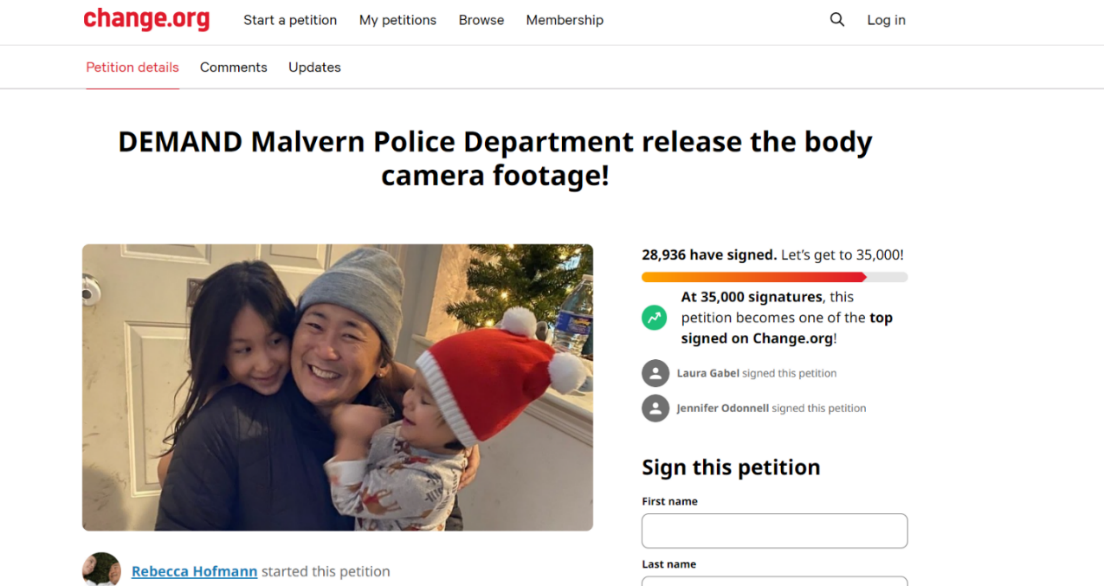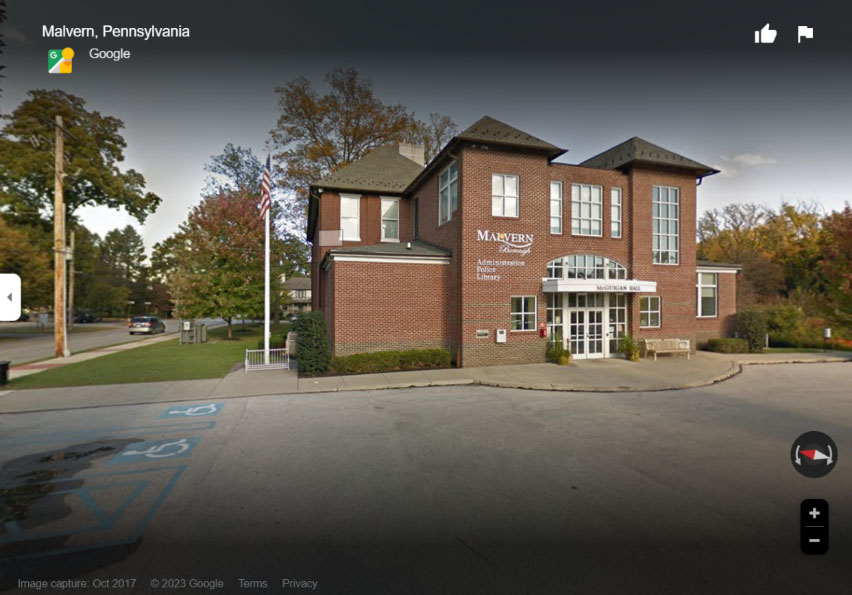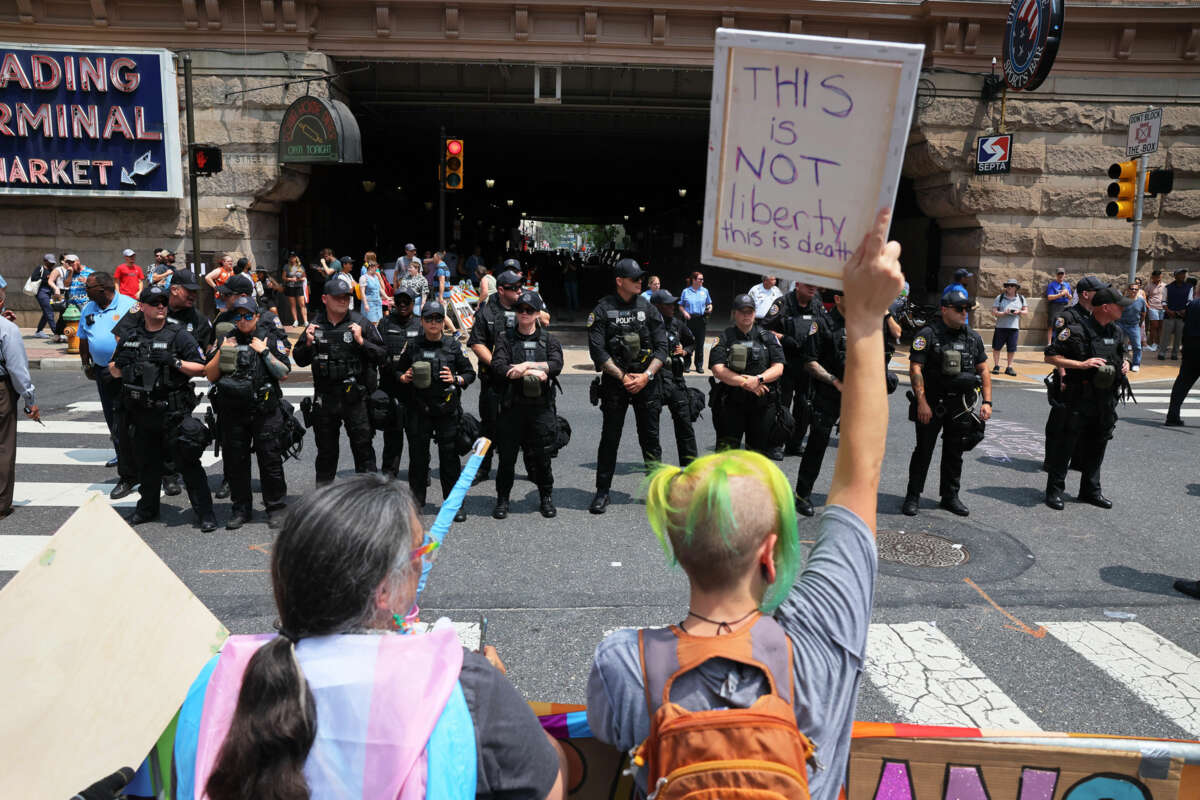On May 19, 2022, police in the small borough of Malvern, Pennsylvania, conducted a wellness check on 47-year-old Korean transgender woman Maddie Hofmann, who was experiencing a mental health crisis. According to the Chester County district attorney, Hofmann allegedly opened the front door with a gun in their right hand. An officer convinced them to drop the firearm, but Hofmann allegedly picked it back up. A struggle ensued, and Hofmann allegedly waved the gun at the police. An officer fatally shot them three times. The incident lasted only 57 seconds.
After a two-week investigation, the DA’s office concluded that the officer’s use of deadly force was justified. Hofmann’s spouse, Rebecca Hofmann, started a Change.org petition demanding still unreleased body-worn camera and dash camera footage be turned over to the family’s attorney. More than 29,000 have signed the petition so far, with commenters declaring, “Trans Lives Matter,” and, “There’s absolutely no reason someone should be killed during a wellness check.”
Rebecca told Truthout in a Facebook message that she’s hoping to gather enough funds to bring Maddie’s ashes back to their birthplace in Seoul, South Korea. “They were adopted at 3, and they never were able to make it back to their homeland,” she said.

Hofmann’s death calls attention to ongoing issues of police-perpetrated killings of those experiencing mental health crises, including transgender people. It also speaks to the lack of police transparency, police funding and the policing of mental health more broadly. Indeed, due to a staggering number of police-perpetrated killings, most prominently of Black people across the United States, advocates have called to reform and defund the police and invest those resources into health care, housing, and other community supports.
Yet, unlike major U.S. cities like New York City, Minneapolis, or Philadelphia where much media attention has been placed, Hofmann’s killing occurred in a suburb which hosts a population of just 3,419 residents and sits on 1.2 square miles of land, 25 miles outside of Philadelphia.
In the wake of Hofmann’s killing, Malvern officials have protected local police through continued budget allocation, despite low crime rates and mounting police controversies. In 2023, the Malvern Borough council increased the police budget to $1.5 million from $1.4 million in 2022, up from $1.34 million in 2021.
A police budget of $1.5 million may seem minuscule compared to Philadelphia’s $800 million police budget, but it represents about 28 percent of Malvern’s $5.5 million operating budget, compared to Philadelphia’s 14 percent. That’s despite Malvern police reporting in 2022 only four violent crimes (simple assaults) and eight serious property crimes (four larceny thefts, three motor vehicle thefts, and one burglary), and only resolving the single burglary case.
Hofmann’s death calls attention to ongoing issues of police-perpetrated killings of those experiencing mental health crises. It also speaks to the lack of police transparency and the policing of mental health more broadly.
In addition to funding police vehicles, weapons and salaries, local politicians offer public relations support. Prior to Hofmann’s killing and a month before Malvern councilors increased the police budget by $91,522, the borough council and then-Mayor Dave Burton offered a “proclamation in honor” of the police chief and police department in 2021. During the council meeting, the police chief and the mayor each received plaques, and the council praised the two for having “made a professional, respected, trusted police department.” As recorded in the meeting minutes, the police received “a standing ovation from the crowd of a completely full meeting room in honor for their service.”
Current Democratic Mayor Zeyn Uzman has also done much to protect the public image of the Malvern police. According to eyewitness accounts, Mayor Uzman attempted to stop the circulation of the Malvernian, a free, watchdog newspaper, edited and distributed by resident Danny Fruchter, which frequently draws attention to local police. Uzman reportedly went into a local convenience store and berated the store manager and two cashiers for supplying the print-only paper, threatening them with a police boycott.
Uzman admitted in correspondence with Fruchter that he told the manager, “I would appreciate it when [the Malvernian] comes in, it should be disposed of because it is an attack against me and our Police Department,” according to Fruchter’s recounting in the Malvernian. At the November 15, 2022, borough council meeting, Councilor Joe Bones demanded Fruchter produce a witness. Fruchter offered to show three eyewitness video accounts, but the council did not follow up on his offer.
Indeed, the structure of the biweekly open council meetings leaves little room for public engagement. Residents are afforded three minutes to speak at the end of the two hour-long meetings, and councilors have no obligation to respond. “Public comment means comment, not questions,” Solicitor Wendy MacLean asserted in one meeting, as documented in the Malvernian. When a comment is posted in the minutes, the interaction may be left vague. When Fruchter addressed the council about the mayor’s behavior in the store, the minutes simply reported that, “Mr. Danny Fruchter commented on the Mayor and Malvern Borough Police Department’s performance from a prepared statement read by him,” therefore providing no official record of the incident.
With a police force protected by local officials, it’s perhaps little surprise what happened to Hofmann’s spouse, Rebecca, when she confronted Malvern officials at a council meeting on December 20, 2022 — seven months after Maddie’s death. The council rejected her lawyer access to dash and body camera footage, and the chief and mayor denied having control over its release. Rebecca responded in an open letter in the January/February 2023 edition of The Malvernian:
How far are you each willing to go to protect people who won’t even attempt to justify their actions? Have ANY of you even asked yourselves why your Police Chief and Mayor won’t share the footage? Or would asking yourself this force you to face the reality of where you have placed yourselves: Bathing in idolatry of your Police Department while refusing to hold them accountable.

Maddie’s family is still searching for justice. “Over a year has passed & I still don’t know how to answer our kids’ questions. More than a year & we are still no closer to answers,” Rebecca wrote on Facebook on August 3, 2023
Media that fights fascism
Truthout is funded almost entirely by readers — that’s why we can speak truth to power and cut against the mainstream narrative. But independent journalists at Truthout face mounting political repression under Trump.
We rely on your support to survive McCarthyist censorship. Please make a tax-deductible one-time or monthly donation.
